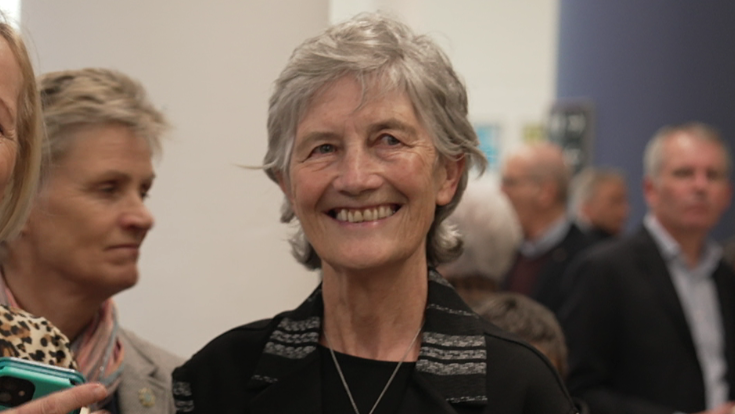'Speaking Irish is everything' - Belfast hosts thousands for language festival
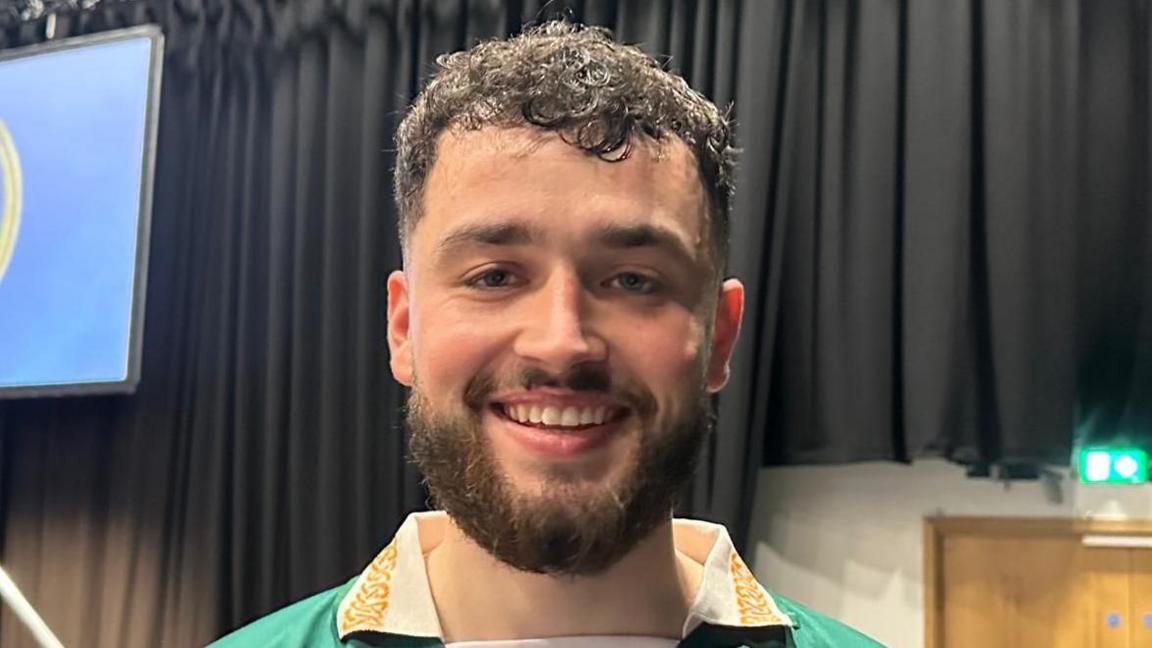
Laochra Mac Iomaire has been attending the event for a number of years
- Published
What does your language mean to you?
Identity, culture, self expression - these are some of the reasons language speakers are determined to speak and maintain their native tongue, and the thousands of people who have packed into Belfast's Waterfront Hall this week are no different.
They are here for Oireachtas na Samhna, Ireland's oldest Irish language and arts gathering, which celebrates arts, music and spoken word, and features competitions, debates, film screenings and workshops all delivered in Irish.
The event dates back to 1897 and is making its return to Belfast for the first time in 30 years - a move attendee and Belfast native, Laochra Mac Iomaire, said was "historic".
The Kneecap effect in Irish language
The 23 year old has been attending the annual event for the past couple of years - in Belfast, it's expected to attract 10,000 people from opening day on Wednesday until it ends on Sunday.
And, in a time when Irish language discussion is often dominated by debates around street signs and claims of a "culture war", Laochra told BBC News NI that speaking Irish means "everything" to him.
"I was raised with it as my first language, it's the language I speak to my parents.
"It's more than just a language, its about preserving the culture of who we are as people."
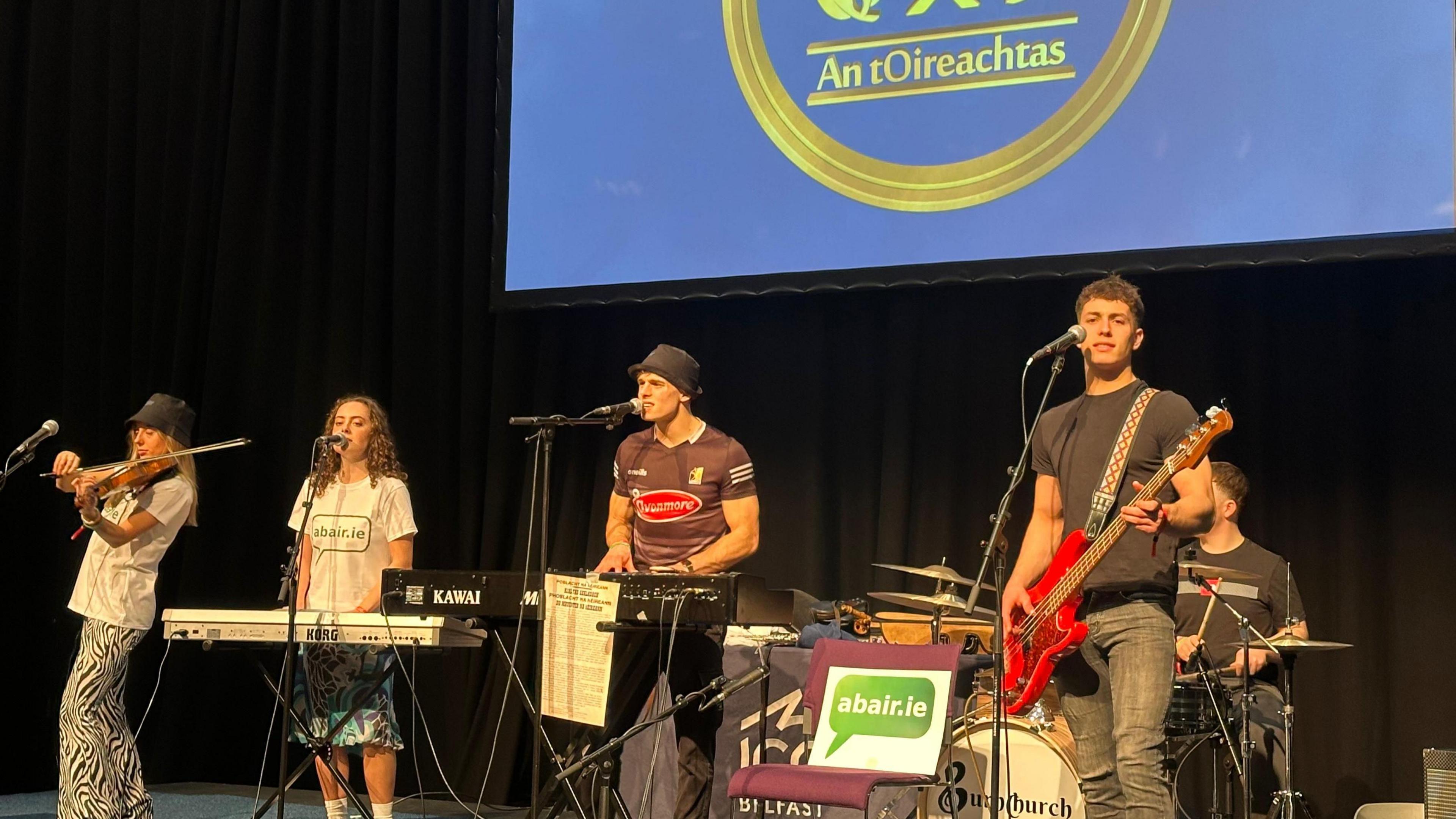
A band plays at Oireachtas na Samhna in Belfast
Laochra, who runs his own business which promotes Irish on a range of products, recalled being embarrassed to speak the language as a child.
At the time not many others spoke it, but now he feels more people are "proud" to know Irish.
He credits rap trio Kneecap for helping to popularise the language with young people again, noting that several of his friends sought out Irish classes after watching their film.
The controversial group from Belfast, who rap in both Irish and English, gained global recognition with their self-titled film and have made headlines for their political stances.
Their award-winning Irish-language film, a semi-fictionalised account of the raucous band's formation amid a call for more protections of their mother tongue, was part of the five-day event's opening programme.
Language is 'cultural identity'
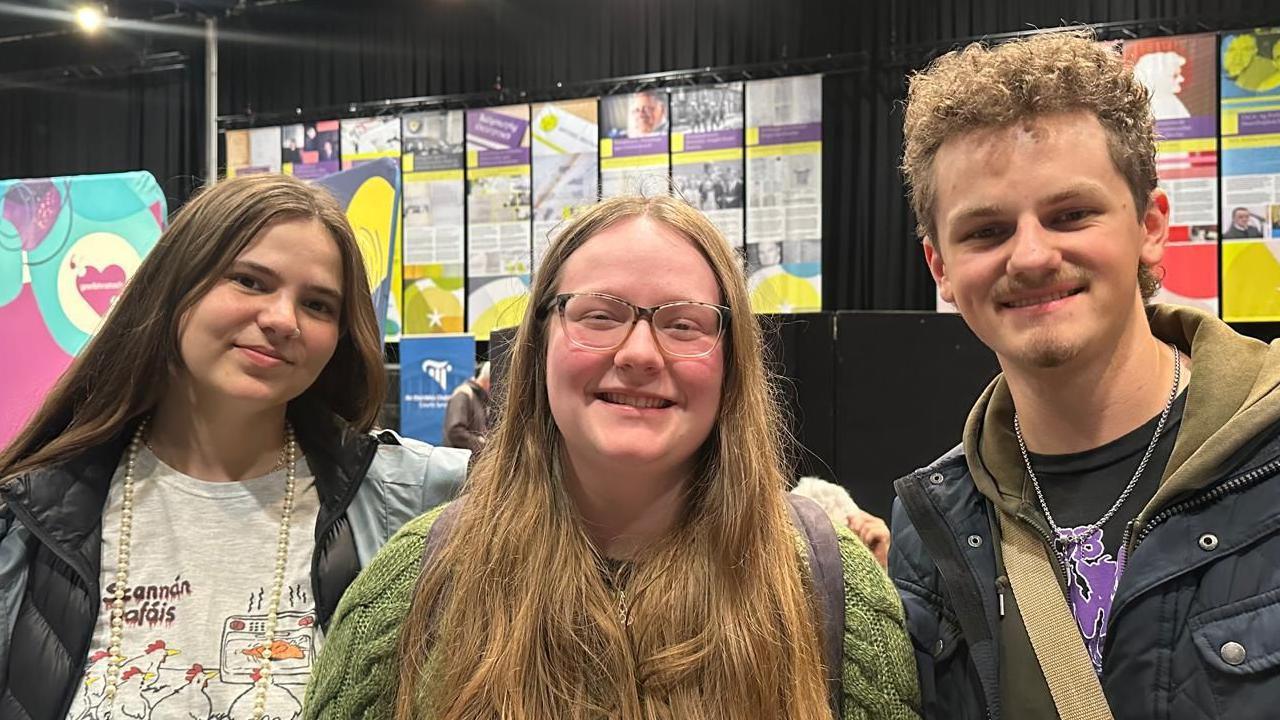
Fiona (left) from Toronto, and Preston (right) from Boston attended Oireachtas na Samhna
Alongside musicians, dedicated Irish broadcasters and radio stations have helped bolster what has been branded as a "Irish language revolution" in recent years.
Preston, from Boston in the United States, said avenues like these have helped "spread the message that Irish is still alive, it's still spoken and it's gone around the globe".
The 20 year old, who was attending the event in Belfast with his Irish language class from the University of Toronto, said he had been inspired to study the language after growing up watching hurling and playing in Irish trad sessions.
"I see language as a reflection of cultural identity, so if you lose the language, you lose a big part of who we are, both Irish people and the diaspora, so I think it's really important to hold on to," he added.
His classmate Fiona, 25, from Toronto, said hearing so many people speak Irish at the event had been "heart-warming" and "refreshing" after not meeting any Irish speakers on her previous trips to Belfast and Dublin.
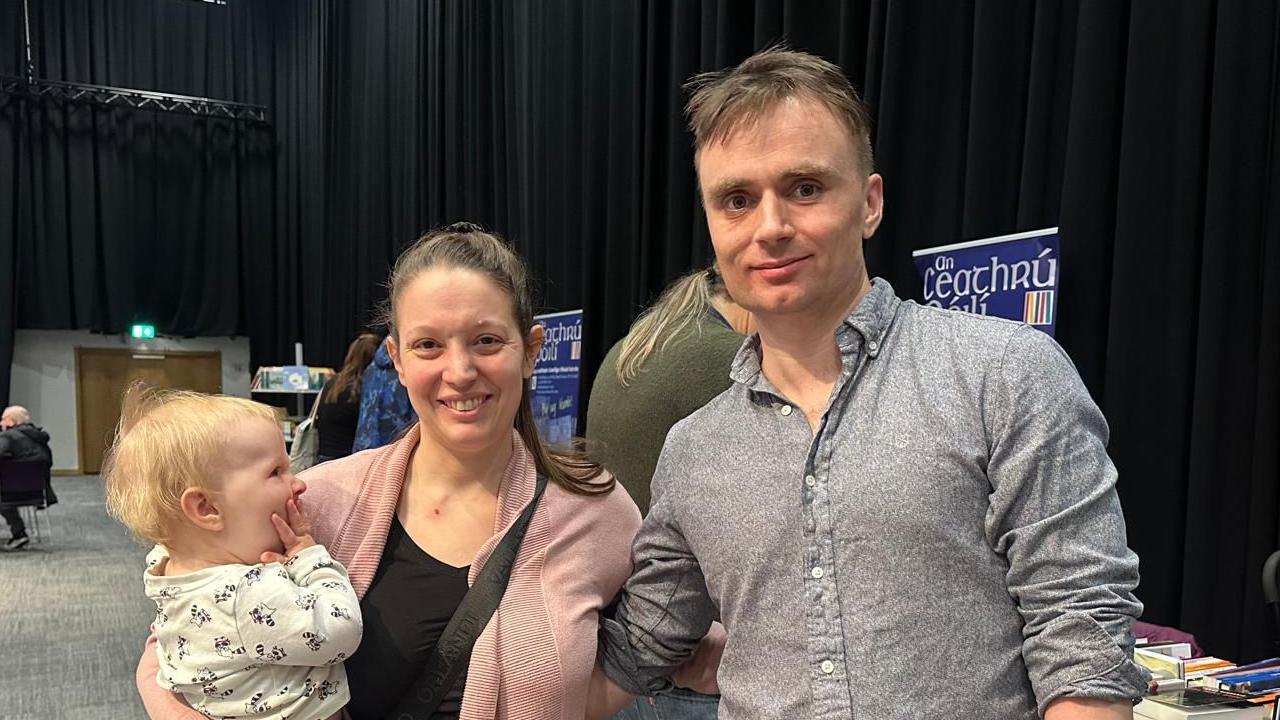
Colm Ó Mathúna and his wife Lora brought their two young children to the event
Colm Ó Mathúna, from County Wicklow, and his wife Lora, from north California, brought their two young children to the event.
They said having attending things like Oireachtas na Samhna was "priceless" as they can immerse their children, who they are raising as bilingual, in Irish.
Lora said it is "very encouraging" as a linguist to see so many people interested in the language and hopes it will encourage her children.
"Being bilingual is extremely useful for your brain development and everything else, it makes other languages much easier to learn," she added.
"In a way, its a different way of seeing the world because even the way Irish describes that your emotions are on you rather than you are the emotions is a different way of seeing the world and how things work - and I think that is extremely valuable."
Colm taught himself Irish as an adult through courses and a tutor, after losing his knowledge of the language after school.
He was passionate about returning to Irish as he feels "if we lost it, it would be like a pit, there would be something essential about the country lost".
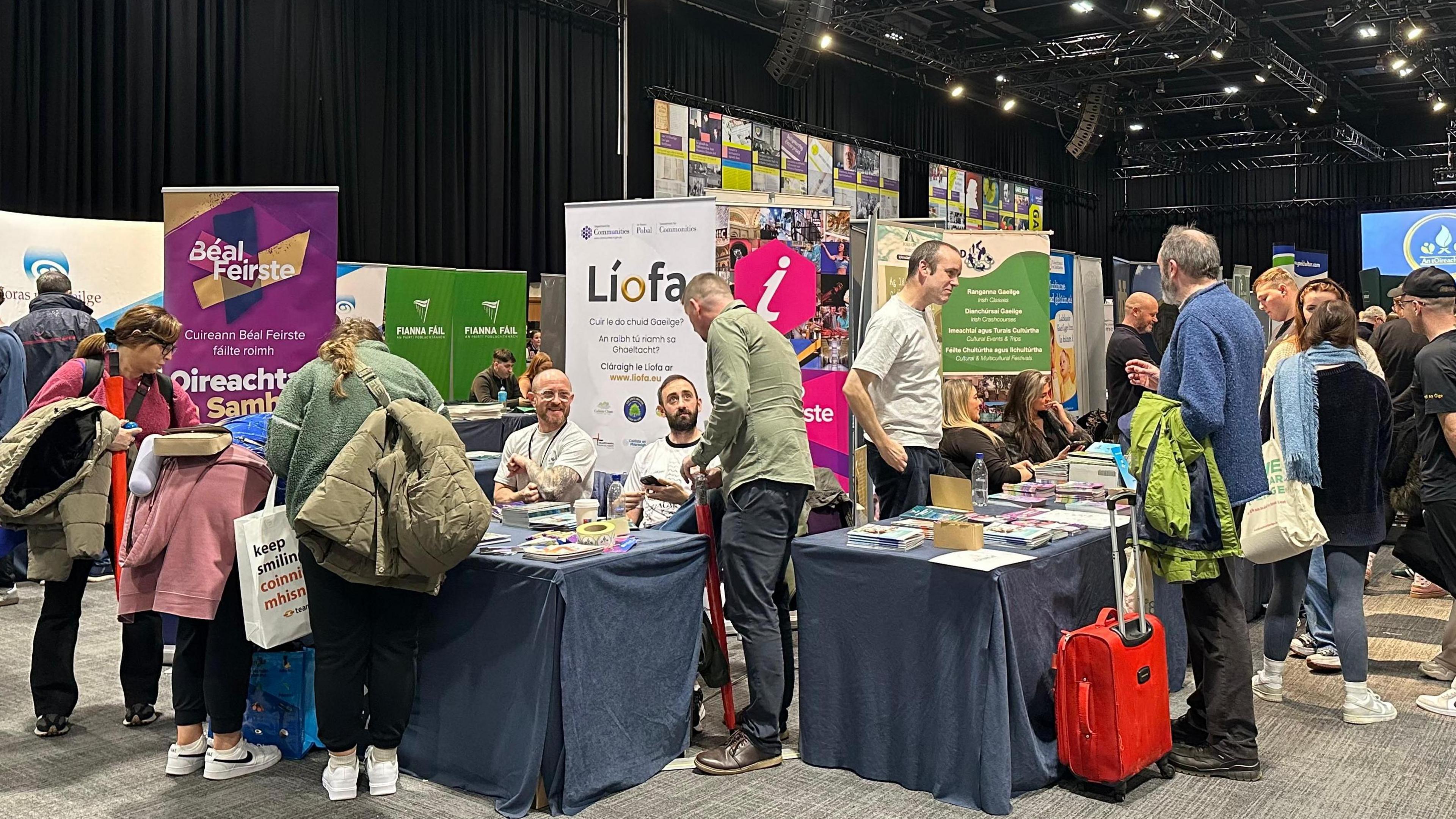
The event was last hosted in Belfast in 1997
Oireachtas na Samhna began on Wednesday, with Irish president-elect Catherine Connolly making her first visit since her successful election to attend the official opening.
Competitions across the event include Corn Uí Riada, a top honour in sean-nós (old style) singing, Steip (sean-nós dancing) and Lúibíní (two people answering each other in sung poetic verses).
The event was last held in Belfast in 1997, with Dublin, Galway and Cork among the cities who have hosted the festival over the years.
Events are being held in venues across the city including the Waterfront Hall, Ulster Hall and the Europa Hotel.
Belfast City Council has also appointed £30,000 of grants to five Irish language organisations, who delivered arts activities to local communities in the run-up to the festival.
The event comes as Northern Ireland's first Irish language and Ulster-Scots commissioners were formally appointed earlier this week.
Pól Deeds, the deputy chief executive of the cross-border body Foras na Gaeilge, was formally appointed as the new Irish language commissioner on Tuesday.
Irish language groups hailed the appointment as a "watershed moment", which came off the back of "thousands of Gaels taking to the streets over the last decade".
Related topics
- Published28 October
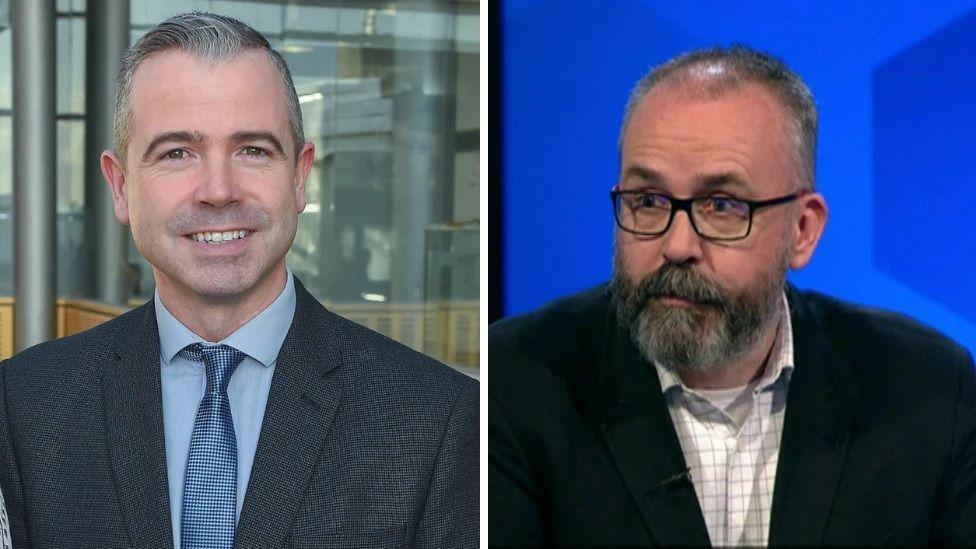
- Published29 October
